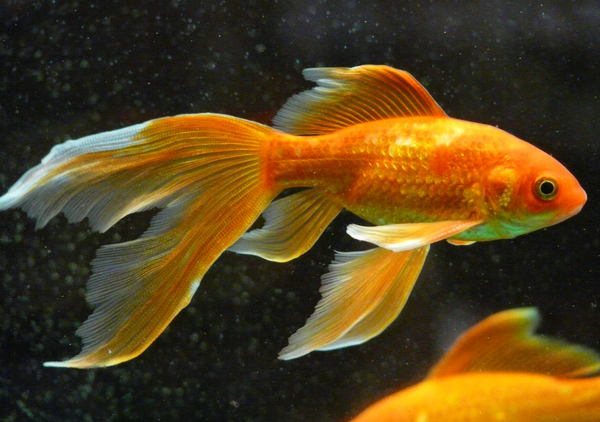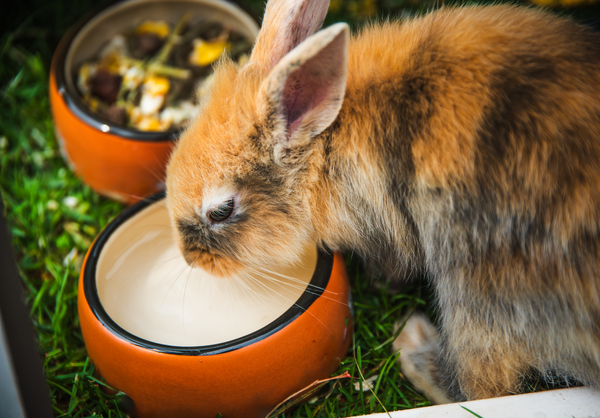Love is not unique to the human species, and many of our friends here at Pisces need to be kept with their own loved ones in order to thrive. This Valentines Day, we want to celebrate all kinds of love – including the kind with an almost entirely genetic reasoning.
Many animals need to be kept in pairs or groups for their own well-being – whether to support mating behaviours or even to fulfill their social needs. Additionally, living in pairs, packs, and flocks is an effective way to ensure higher survival rates for many animals in the wild, which is a behaviour that doesn’t just go away in captivity!
Here are some pets found at Pisces that need to be kept in pairs:

In the wild, finding a guinea pig living their years out solo would be impossible. Guinea pigs are extremely sociable animals, and can even become so distressed from being alone that it can impact their health – sometimes even fatally. In the words of Akon, they can become: “lonely, Mr. lonely.”
Wild guinea pigs live together in groups, and this roommate situation should be replicated to the best of your ability when caring for one as a pet. Certain combinations of guinea pigs are preferred though, as we do understand that most owners aren’t up to supporting a colony of furry friends. Two or more female guinea pigs usually fare just fine together, as does one neutered male with multiple females. Two or more males can become a little tense as they start to mature, and multiple introductions may be needed to ensure it's a good social match for each of them. Of course, male guinea pigs should always be neutered – especially when living with female counterparts.
However, once you find your pair, rest assured that these two will be best buds – guinea pigs mate for life.

Another furry group dweller on our list is rabbits. In fact, rabbits can become “bonded,” resulting in a life-long connection between two friends. Rabbits that are bonded will take part in all of their daily activities together, including eating, grooming, sleeping, and playing. Rabbits who are separated from their bonded buddy for a period of time may take a moment to be reintroduced. Outside of captivity, rabbits live in burrows with lots of other rabbits – safety in numbers!
Unlike guinea pigs, rabbits can be kept as a single pet, but there is one caveat: keeping a rabbit as a single pet will require you to step in as their best bud and work to bond with them on your own. This means more bunny time! For more information, check out our YouTube Video on bonding with your pet bunny.

There are several types of fish that need to be kept in pairs or groups, or at least benefit from doing so. One of those is Cichlids. These romantically-inclined swimmers are, like (most) humans, socially and genetically monogamous! In the wild, Cichlids keep their young safe by defending their nest as a couple for 6-8 weeks – giving their young a better chance at survival with both parents on guard.
They often continue their courtship after this period too, with many cichlids breeding together for several spawnings. For these love-struck fish, their monogamy serves an important biological purpose: it guarantees they can find a high-quality mate and territory in a competitive environment.

Gerbils are furry, family-oriented creatures. Groups of gerbils are formed by a founding mating pair and then grow to include their offspring and extended relatives. In short, gerbil children never move out of their tight-knit family units. Because of this, gerbils who are kept alone can become lonely and bored.
Gerbils are friendly, furry creatures who can become quite lonely without other friends in their enclosure with them. In the wild, they are burrowers and live together in “clans” of up to 15 at a time.
Gerbils are extremely curious and social animals and need all the stimulation they can get from their environment and roommates. Studies on gerbils have shown that when kept alone, gerbils live shorter lives, have higher body weights, and can become more sedentary. On the other hand, gerbils who are kept in groups are much more active, more engaged, and live longer lives. However, remember to only keep them in same-sex groups in captivity to eliminate breeding risks.

Last, but certainly not least, love birds are one of the pets most commonly associated with love. Like many other species of birds, love birds are not solo creatures and need to be kept in pairs. However uniquely, they are monogamous, even within flocks. Lovebirds reach sexual maturity at approximately 10 months old, which is followed by “courtship behaviour” that sees them find a mate. Upon finding their special someone, these birds can stay monogamous for their entire lifespan– up to 15 years!
Within a flock, monogamy is an essential part of social stability by allowing the flock to pre-determine relationships. Keeping in the theme of romance, love birds can exhibit behaviours reminiscent of depression if they lose a mate. However, unlike Romeo, they can usually process their grief and snap out of it in a few weeks.
Are you thinking of getting a pet that might need to be kept in a pair, group, or flock? Give us a visit at Pisces Pet Emporium and we can help you find a pair of BFF’s.




